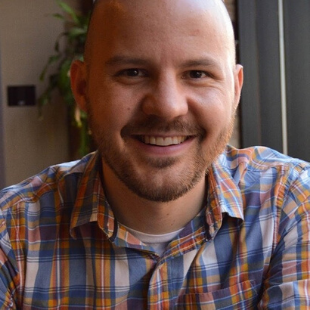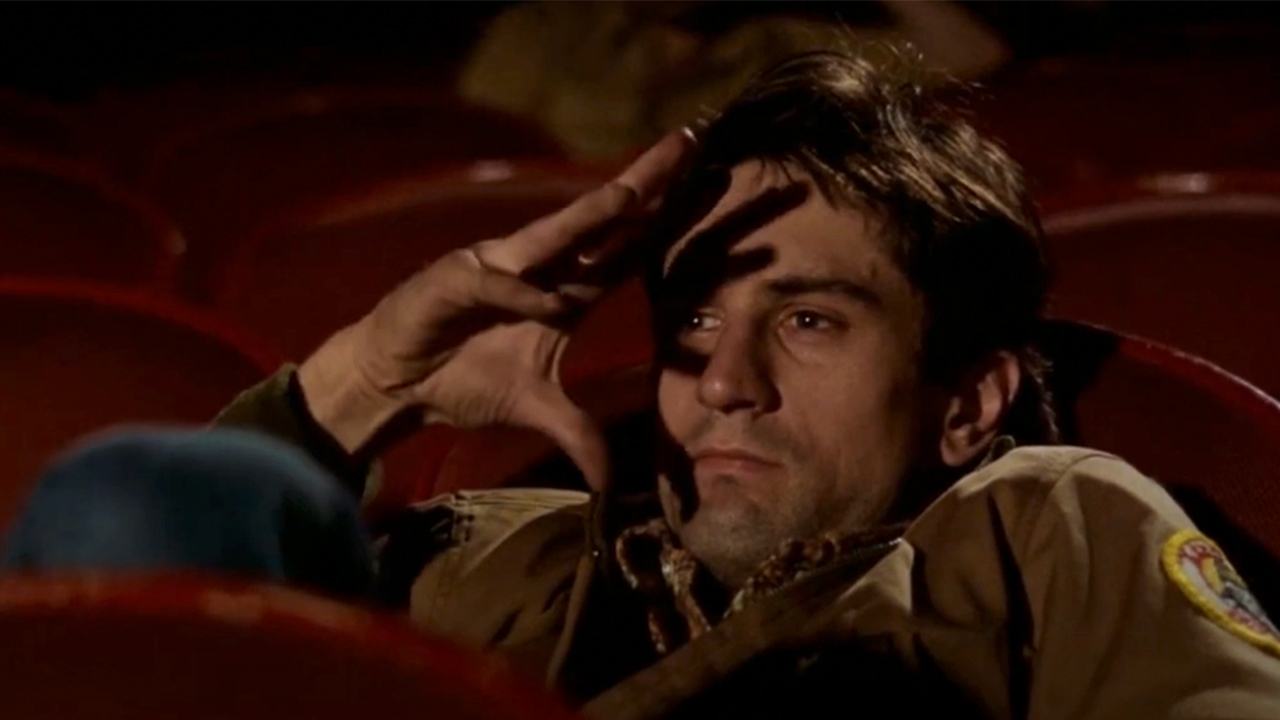The Main Reasons Some Star Wars Fans Have Issues With The Last Jedi
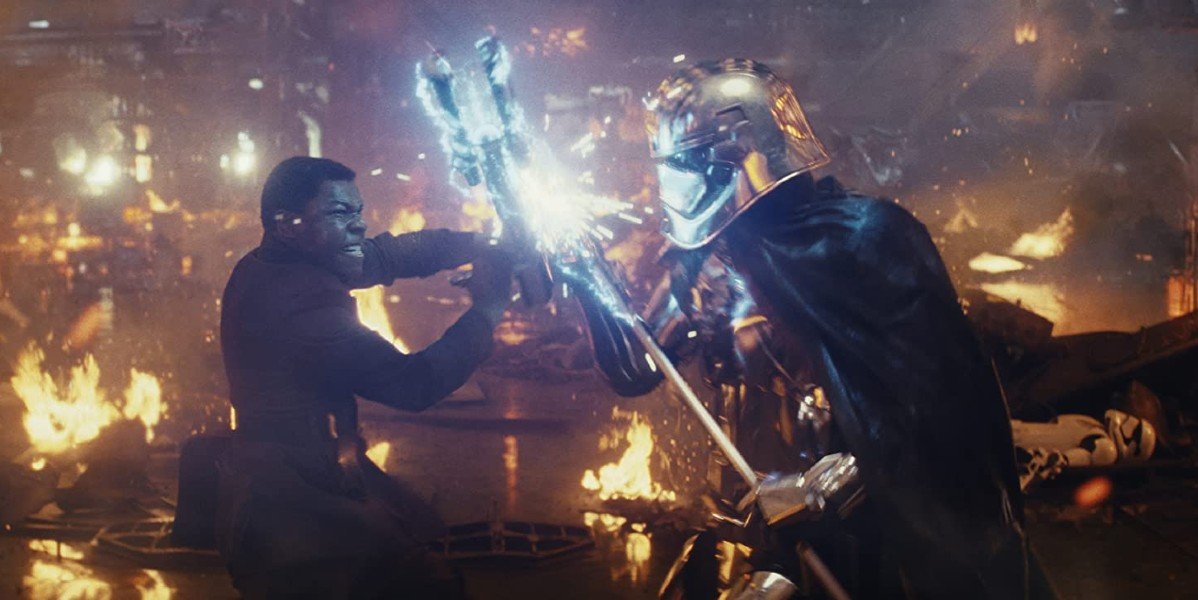
It’s no secret that some Star Wars fans have issues with Star Wars: The Last Jedi. It sparked a new, unprecedented wave of anger and hate from the Star Wars fandom that reverberated throughout the internet. After it was released, director Rian Johnson received death threats. The backlash and sensitive climate even scared off potential filmmakers from working on future Star Wars projects, and some Star Wars actors deleted their social media accounts due to frequent abuse. So, yeah, it rattled some cages.
While some fans have been noted as having bigoted, sexist and overall vitriolic issues with The Last Jedi, I’m not going to address any of that. Instead, I will try to tackle some of the legitimate story, character, narrative and plot issues fans have raised against the movie. After all, according to Rotten Tomatoes, while fans and critics seem to share the opinion that The Force Awakens works, they greatly diverge with The Last Jedi. Critics all around seem to love the film, while plenty of fans tend have a lot of issues with it. So, let’s dive right in.
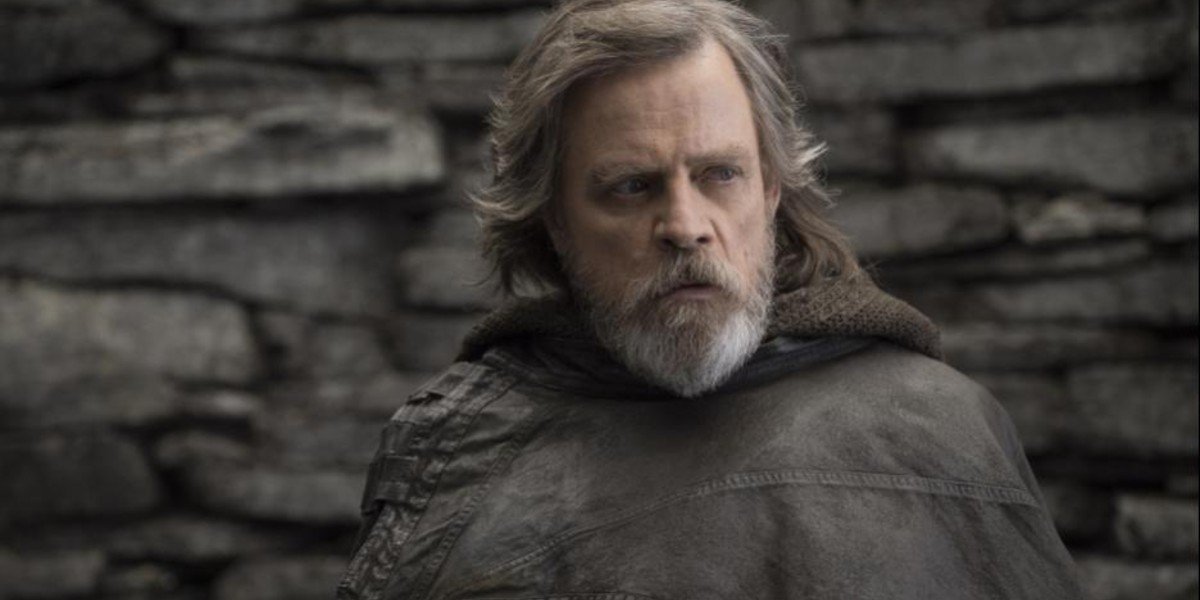
Luke Not Being A Badass Jedi Warrior
What detractors will say: At the end of Return of the Jedi, Luke stands victorious as a Jedi Master. We always wanted to see Luke in his prime Jedi form, using his powers to the fullest and fighting for the New Republic. Instead, in The Last Jedi, we got a cynical old hermit who despised the Jedi and wanted nothing to do with Rey and the Resistance’s fight against the First Order. Luke Skywalker’s character at the end of Return of the Jedi wouldn’t have acted this way. Even Mark Hamill doesn’t like Luke Skywalker in The Last Jedi.
Plus, when Luke Skywalker does fight Kylo Ren in the end, he’s only an astral projection, and using that Force ability ends up killing him. There was so much build-up to Luke’s appearance in The Force Awakens and all we got was a cranky old wizard that eventually dies. We were ripped off.
Counterpoint: Return of the Jedi takes place 30 some years after the events of The Last Jedi. People change considerably in a matter of 30 years. Rian Johnson argued that it’s a disservice to Luke’s character to assume he’s achieved some kind of permanent video game power-up after Return of the Jedi. Which makes sense; why should we expect him to be the same person?
Luke Skywalker is a different person when we meet him again in The Last Jedi, especially because of the traumatic events that happened to him at the Jedi Temple. Ben Solo slaughtered Luke’s apprentices and burned the temple to the ground. Wracked with guilt for being the reason Ben Solo turns into Kylo Ren, Luke Skywalker goes into exile. It makes total sense why Luke Skywalker would feel defeated after spending around 30 years of his life training Jedi only to see it all come crumbling down. He’s spent, he’s done and he’s not wasting any more time in the fight.
I understand the expectation that Luke Skywalker should have been running into the fray to fight the Dark Side. We all wanted to watch Luke continue his hero’s journey. But The Force Awakens never gives us any indication that should be an expectation. We were kind of tipped off from the beginning that something must be wrong with Luke if he’s hiding out somewhere.
Your Daily Blend of Entertainment News
Also, Luke Skywalker not being what we want him to be is the point of The Last Jedi. Star Wars fans build up these expectations with theories and fan fiction, but by doing so, they steal the thunder of the storytellers trying to give them something fresh and special. Rian Johnson knew the only way to give Star Wars fans something different and new was to subvert the false expectations they’d been building for years.
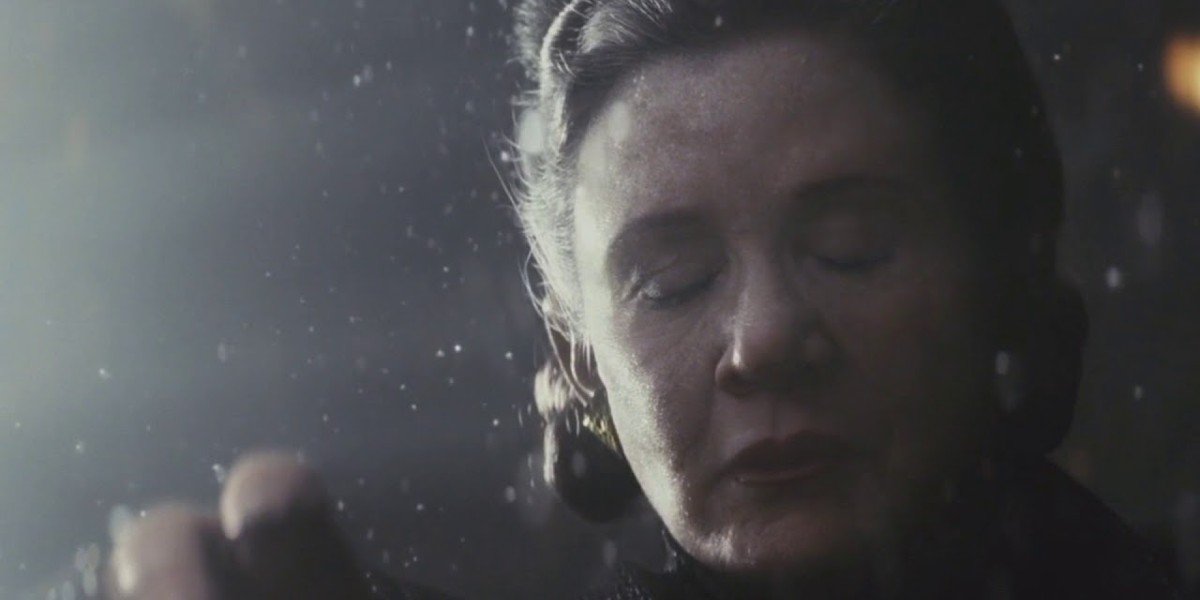
Leia’s Space Mary Poppins Force Move Is Cheesy
What detractors will say: The scene where Leia is blasted out into space and supposedly dies, but then miraculously comes back to life and flies through space, like Mary Poppins, is cheesy to some fans. The special effects are bad, the look of her flying through space with her arm stretched out his laughable, and any special moment they tried to create fell flat.
Before this, we were never given any indication that Leia was officially trained in the Force. There were only a few hints of Force sensitivity, like in The Force Awakens, when she sensed Han Solo’s death. Her ability to survive the vacuum of space and fly through it to safety feels like it came out of nowhere. As a result, it’s a tease with a flimsy solution.
It also raises a lot of questions and problems. If Leia is this powerful in the Force, why is she looking for Luke at all? Why doesn’t she use her own powers against the First Order when they’re invading Crait? Nothing about this scene works except as a deus ex machina story device to save Leia from dying.
Counterpoint: This scene with Leia is certainly unexpected and controversial. Even Rian Johnson admitted that he expected it to be a stretch with different audiences. It’s not without precedent, though. In Return of the Jedi, Luke tells Leia she has the Force too. It’s assumed that Leia has been trained in the Force by this point.
For Rian Johnson, this scene is less about her extreme power and more about the survival instinct. He likened it to stories about parents with a toddler caught inside a car and they suddenly have superhuman strength to rescue the child. This is a survival moment for Leia, a one-and-done experience that forces her to muster all her strength to crawl back into the fight.
Now, thanks to The Rise of Skywalker, we know that Luke did train Leia in the Force and that she mostly put that life behind her, but eventually helped train Rey too. While at the moment Leia’s floating to safety scene might have been such an unbelievable shock that it rubbed fans the wrong way, I think with the knowledge that she was trained, the scene doesn’t come across as cheesy or forced anymore. It makes perfect sense.
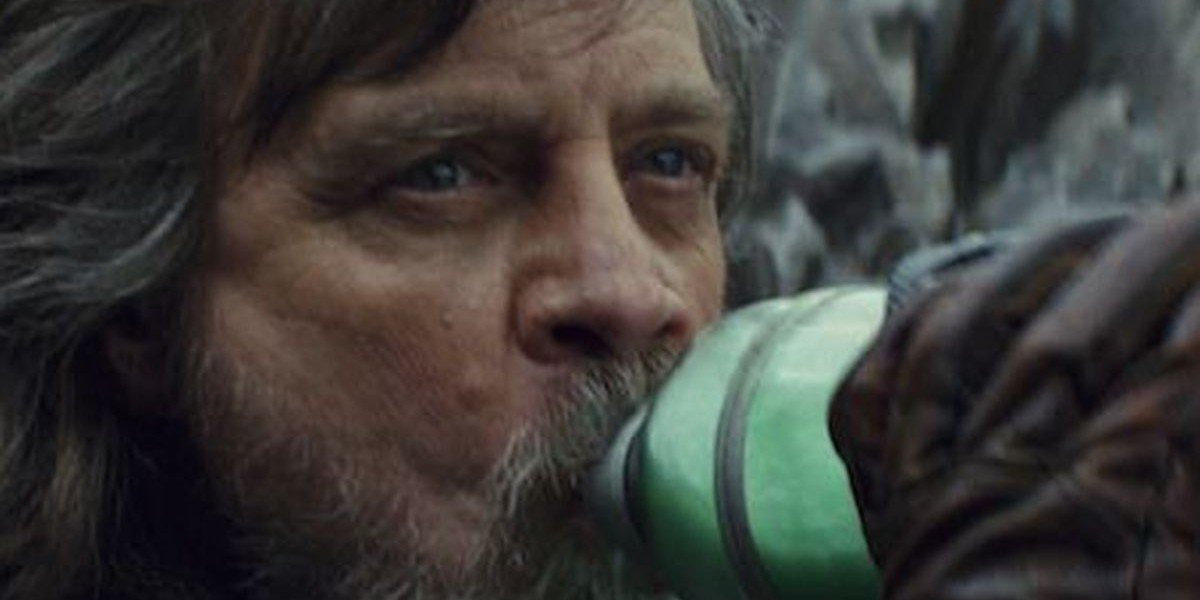
It Has Too Much Humor
What detractors will say: The Last Jedi opens with Poe Dameron prank “holding” for General Hux. Some fans feel the juvenile humor is not only cringe-worthy, but it undermines the fear the audience is supposed to have for the First Order and General Hux. And it only gets worse from there. From Luke throwing his lightsaber over his shoulder to Finn wearing the leaky suit, every attempt at humor lands with a thud. All too often, the humor feels forced, too long and too over-bearing, undermining and getting in the way of the narrative.
Some feel that the humor also seems too reminiscent of recent Marvel movies, like Lucasfilm was trying to take a few notes out of their playbook. Star Wars isn’t meant to be too jokey and “haha” funny like the Marvel movies.
Counterpoint: Of the issues fans have with The Last Jedi, this is a hard one to address, mostly because of its subjective nature. Since A New Hope, Star Wars has had a long history of including comic relief. From Han Solo’s “bad conversation” with an Imperial soldier over the intercom to C-3PO and R2-D2’s silly bickering, there’s been plenty of humor to go around throughout the series. Sometimes the humor works well, like Yoda’s childish behavior when he first meets Luke. Other times, it doesn’t, like pretty much everything Jar Jar Binks does.
Including humor in a movie is always a risky proposition. You never know if it’ll land or not. That’s why a lot of directors mostly steer clear of it, as they're afraid it’ll sour the rest of the movie. For some, the Poe Dameron scene is a hilarious way to break the ice from the start, but for others, it’s too much, too soon. Managing the proper type of humor is difficult to balance, especially in a story that has a number of conventions and expectations already built in.
On the other hand, it’s a good thing Rian Johnson used humor at all. For many, The Last Jedi was expected to be a dark, somber story reminiscent of The Empire Strikes Back. While it does have some darker edges to it, Rian Johnson was adamant that everyone should still be able to lighten up and have a little fun. I doubt anyone would have wanted The Last Jedi to be a joyless trudge through the galaxy.
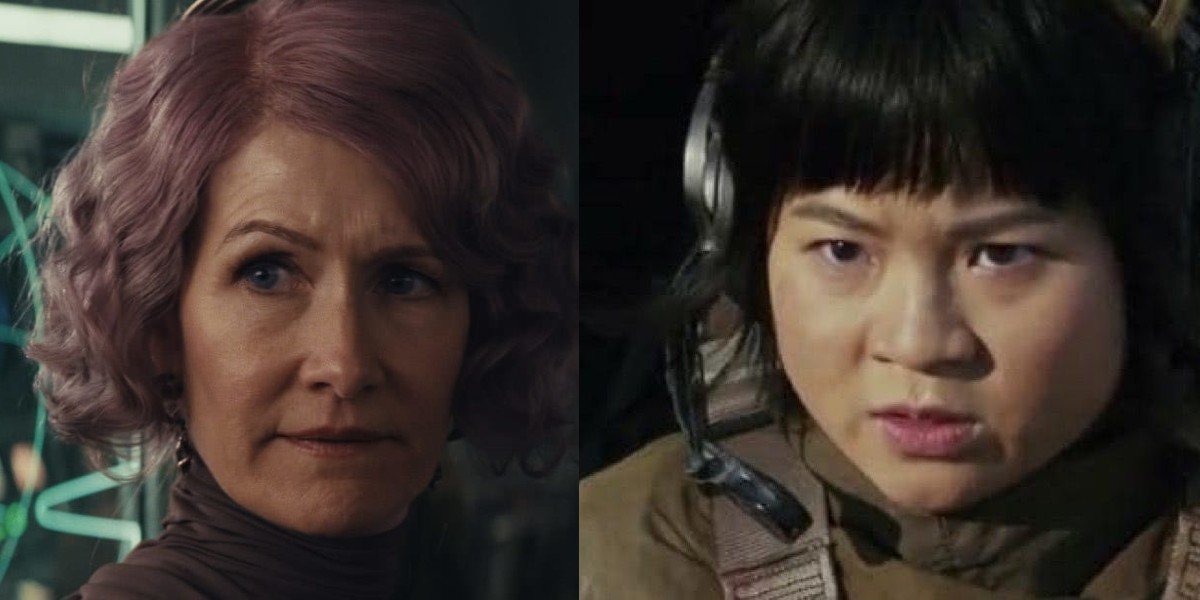
They Dislike Rose Tico And Admiral Holdo
What detractors will say: First off, let’s start with Rose Tico. Some fans think that she's a pointless and unnecessary character. While Finn’s motives are to find and protect Rey, Rose has razor-thin motives. She tags along for some reason to go to Canto Bight. On top of that, nothing she does helps the Resistance’s cause or furthers their goals. They don’t find a master codebreaker, but find Benicio Del Toro’s DJ, a shady “codebreaker” who ends up betraying them. To make it even worse, she rammed into Finn’s vehicle to stop him from sacrificing himself to save the Resistance and said the most nonsensical line ever: “That’s how we’re going to win. Not fighting what we hate, but saving what we love.”
Except, wasn’t that what Finn was doing? Saving those he loved? On top of her pointlessness, Rose Tico’s exposition about moral issues is way too preachy and on-the-nose. If she were a character people cared about and actually accomplished something, then perhaps the audience would want to hear what she has to say about the injustices of the galaxy.
That Admiral Holdo is a terrible leader and a smug, totally unlikable character. She takes command and spouts empty words of hope, but does practically nothing for most of the time she’s in charge. When Poe Dameron asks to know the plan, she refuses to tell him and instead insults and demeans him in front of everyone. And her plan? It's to abandon ship to the deserted planet of Crait. Couldn’t she have just told him that and saved him and everyone else a whole lot of trouble? Her lack of communication, empathy and failure to get the trust of the crew caused an unnecessary mutiny on her own ship. Her sacrifice might have made a bigger emotional impact if the audience actually cared for her character, but they didn’t and were more in awe of the stunt than her tragic and needless death.
Counterpoint: The problem is that could be said about a lot of Star Wars characters. Lando Calrissian didn’t have many motives to suddenly decide to help Han and Leia and join the Rebel Alliance. He goes from friend to foe to friend again within a matter of scenes. He abandons his entire operation because why? Darth Vader “altered the deal” a few times? And in Return of the Jedi, his scenes are very limited. We don’t learn anything about him in that time. Yet, Lando Calrissian is a beloved character in the Star Wars movies. My point here is this: characters can be enjoyable and admirable even if they’re not fully formed or don’t have concrete motives.
Also, heroes failing to complete their missions is an honored Star Wars tradition. In A New Hope, Luke, Han and Chewbacca fail to successfully rescue Princess Leia undetected and end up in a firefight and then a trash compactor. In The Empire Strikes Back, Luke goes to save Han, Leia and Chewbacca, but instead, ends up only fighting Darth Vader and getting his hand cut off. Just because a character isn’t successful in the plot doesn’t mean their character is pointless and unnecessary.
Regarding nonsensical lines and political commentary, Star Wars has a long tradition with those as well. Yoda is full of weird, pseudo-philosophical lines. Anyone remember this gem—“Fear leads to anger, anger leads to hate, hate leads to suffering” or “Do or do not, there is no try”? How could anyone forget? You could tear those lines apart all day. They sound good in a movie, but break down quickly when put under pressure. Admittedly, the Original Trilogy isn’t as heavy-handed about political commentary as the Prequels or the Sequel Trilogy, but it’s there nevertheless.
Admiral Holdo’s leadership was no better than how Han Solo behaved in The Empire Strikes Back. While Han Solo and the others were trying to escape the Imperial fleet, he didn’t seem to have much of a plan except to endanger himself and his entire crew by flying into an asteroid field, ignoring the odds. He ran around the ship like a chicken with his head cut off and yelled at everything that moved. No one really trusted him on board that ship and constantly second-guessed his every move. Perhaps Admiral Holdo didn’t do things the way certain people wanted, but that doesn’t make her a bad leader or a bad character.
For me, Admiral Holdo took command in a calm and collected way, putting a hot-head pilot (Poe Dameron) in his place when he started getting out of line. She knew there might be spies on board the ship, so she wasn’t going to tell everyone what she intended to do, especially when they’re up against it and have little alternatives. Could she have gone about certain things a little better? Sure, but, that’s the thing, characters don’t have to be perfect and do all the right things to be good characters. People screw up. They have flaws and make mistakes. Characters who have flaws are better characters than those who know everything and do everything right.
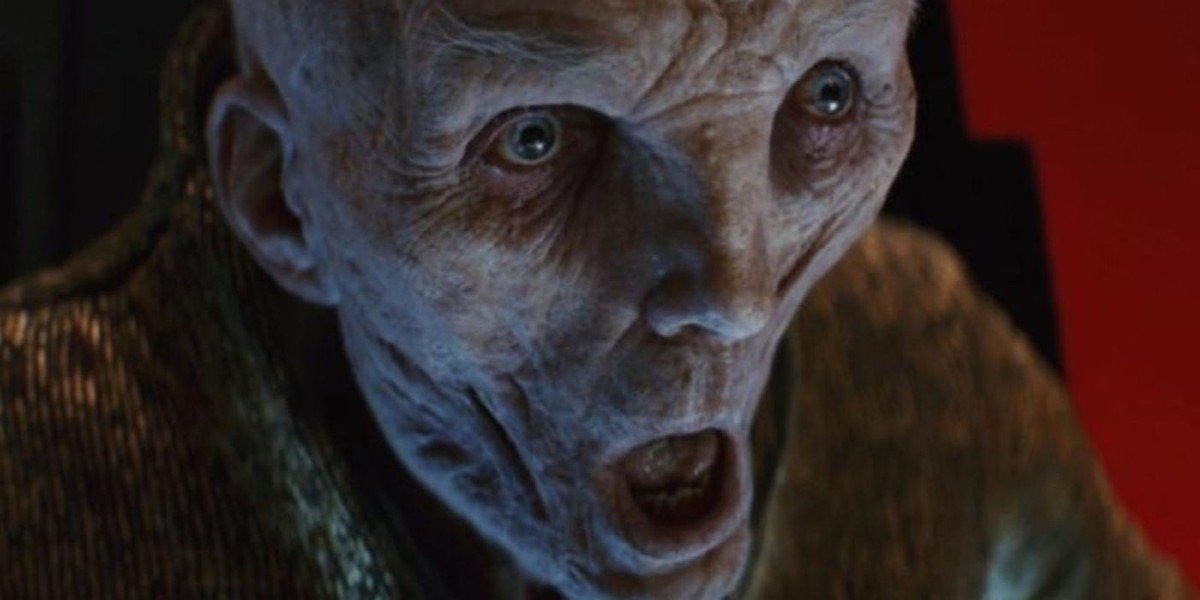
Snoke’s Death Was Mishandled
What detractors will say: In The Force Awakens, Snoke was shrouded in mystery, made out to be the new “big bad” and Palpatine's replacement. We didn’t know much about him, but he was set up as potentially having a larger backstory that we would get to see played out over the next two movies in the trilogy. His mystery was intriguing at first. In The Last Jedi, it looks like we’ll be able to see more of his relationship with Kylo Ren and General Hux, but then there’s nothing. He acts scary and intimidating, and seems to wield great power, but at the last moment, Kylo Ren cuts him down and kills him. What was the point of Snoke at all other than a plot device? Killing Snoke at the end of The Last Jedi left a villain void. Like a black hole, it sucked all the tension and conflict out of the galaxy.
Counterpoint: Typically, the “big bad” or “boogeyman” villain trope never gets a backstory and is almost always shrouded in mystery. Some of this comes down to psychology. People tend to fear what they don’t know. So when you make a scary-looking villain mysterious, it makes the villain that much more scary and intimidating. That seemed to be the same tried-and-true tactic J.J. Abrams was going for with Snoke in The Force Awakens.
It’s been well covered that The Last Jedi is all about breaking and subverting conventions. So, with that in mind, Rian Johnson not only had no intention of revealing Snoke’s backstory, but he also wanted to just put an end to that kind of villain altogether. In effect, Kylo Ren killing Snoke is saying we, as fans, shouldn’t put up with this kind of storytelling anymore. It's tired and a thing of the past.
Kylo Ren would have been the logical villain in The Rise of Skywalker. But instead, The Rise of Skywalker answers the mystery of Snoke. The reason Snoke is a hollow and seemingly pointless villain in The Force Awakens and The Last Jedi, and why narratively speaking, they could kill him without consequences, is because he’s Palpatine’s puppet. Emperor Palpatine has been behind all of it from the beginning. This works better than ignoring Snoke altogether, and arguably, Kylo Ren was so conflicted he might not have been the best bad guy at the end of the trilogy
When push comes to shove, a common thread fans seem to raise is that their expectations weren’t met. Critics see what Rian Johnson tried to do and appreciated it, while a lot of fans didn’t care about any of that and just wanted their expectations met.
As a result, they aren’t satisfied. To a degree, I understand where many Star Wars fans are coming from with the issues they have with The Last Jedi. At the same time, it’s clear Star Wars fans have become too hyper-focused on their nostalgia, theories and fan expectations, making it almost impossible to ever meet those expectations; a point, I think, The Last Jedi was trying to make.
But how about you? Did you like Star Wars: The Last Jedi or do you have issues that weren’t raised here? Let us know in the comments!
